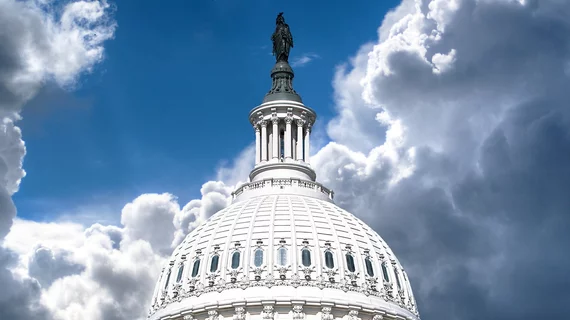Quash ‘reckless’ Medicare cuts that could cost radiology billions, lawmakers urge Congress
A bipartisan group of U.S. House members are asking congressional leaders to quash a Medicare payment change that could cost radiology billions in the years to come.
Spearheaded by Rep. Bobby Rush, D-Ill., the 92 lawmakers want Congress to waive budget-neutrality requirements stemming from a proposed pay increase for office-based evaluation and management services in 2021. Absent such a decision, the imaging industry stands to lose some $10 billion over the next decade, advocates estimate.
The American College of Radiology and numerous other specialty groups have lobbied hard against the change, set to take effect on Jan. 1. And imaging provider RadNet estimated Monday that it will lose $11 million in reimbursement next year, if Congress does not take action.
“It has come to our attention that many specialists are being targeted for ill-conceived and sizeable cuts that simply no longer make sense to implement,” Rush and colleagues wrote to Speaker Nancy Pelosi, D-Calif., and Minority Leader Kevin McCarthy, R-Calif., on Tuesday.
“If these cuts go into effect, they will be devastating for providers and will ultimately result in decreased access to care for patients,” the letter writers added later. “Our healthcare system is already under tremendous financial strain, as it continues to grapple with both the economic and health consequences of the coronavirus. Now is not the time to implement these reckless cuts.”
Rush et al., instead, want the House to waive budget-neutrality requirements related to E/M codes for both the 2021 and 2022 calendar years. The signatories also asked the Centers for Medicare and Medicaid Services to study how failing to counter these cuts could impact providers, along with access to specialty care in underserved communities.
The CardioVascular Coalition—which represents physicians, other providers and industry manufacturers—applauded the letter on Monday. It estimated that interventional radiologists alone will face a 9% Medicare pay decrease next year, absent congressional action.
“CMS should not proceed with any specialty provider cuts while we are in the middle of a public health crisis. Doing so will be harmful to both vulnerable older Americans and their healthcare providers,” Jeffrey Carr, MD, an interventional cardiologist and member of the coalition, said in an Aug. 11 statement.

